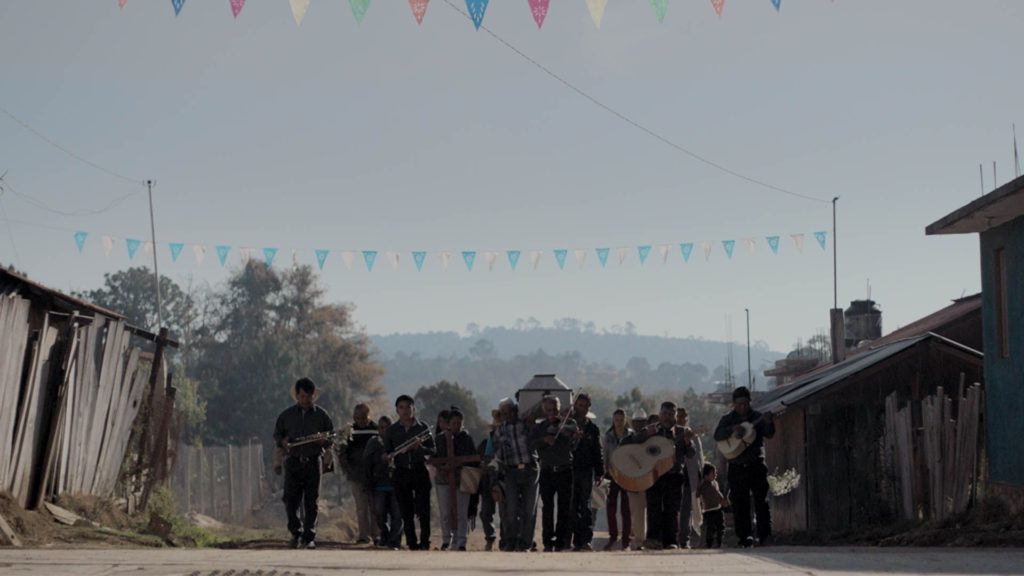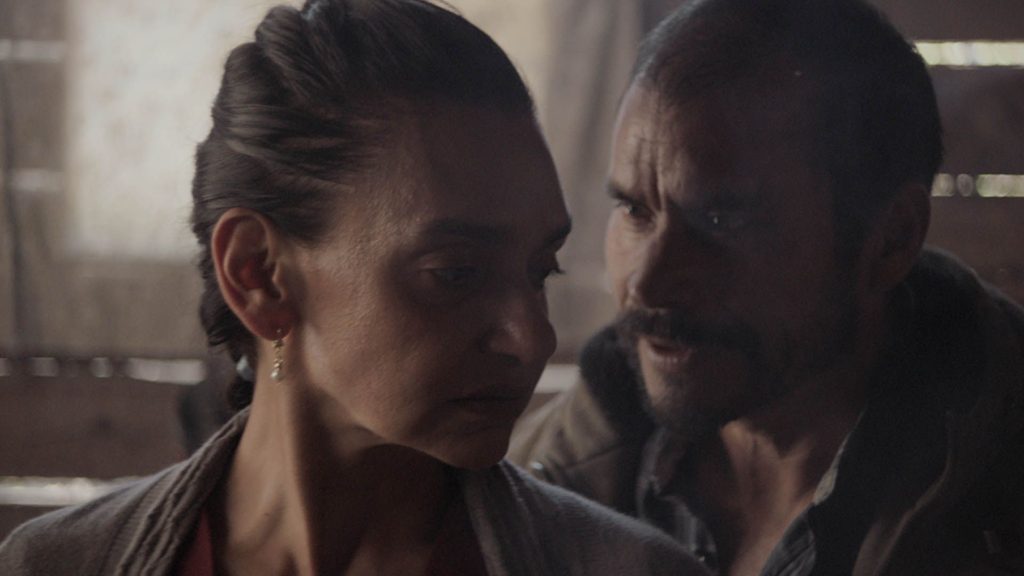
In Nudo Mixteco, we visit an indigenous Mixtec village in Southern Mexico and get three dramas for the price of one. It’s the annual festival, and three long-absent locals return home. One is there for her mom’s funeral. another to intervene in her daughter’s welfare and the third has just decided that’s time to come back home.
Nudo is Spanish for “knot”, and the three stories form a loose braid. As in Kieślowski’s Blue/Red/White, the characters in each plot thread can be spotted in the others.
In each story, the women face constraints of patriarchy and traditional culture. An out lesbian has built a life in the city, but her father in the village cannot accept her sexuality, and even blames it for her mother’s death. Another woman also works in the city, and has left her daughter to be cared for by her sister in the village; reports of the daughter’s behavior trigger concern stemming from the mom’s own childhood sexual abuse.
In the third story, a village man has been working in the US. He had promised his wife that he would be gone six months, but it’s been three years. He expects that he can resume their lives as before, but his wife has moved on. Each feels betrayed by the other, and the village is convened to reach a community decision on a just outcome.
Nudo Mixteco is the debut feature for writer-director Angeles Cruz, who has won Ariels (Mexico’s Oscars) for her short films. Cruz is an accomplished actress, who was nominated for a best actress Ariel in 2018.
I screened Nudo Mixteco at SFFILM, where it won a jury award.

